
As some of you know, I am a big believer in the randomness of sports and the belief that little things (like whether a foul is called or a shot rolls in) are given way too much importance in evaluating coaches and teams. One of my favorite writers,
ESPN's Gregg Easterbrook, in his Tuesday Morning Quarterback, addresses the issue of why we glorify coaches in what I think, is a very interesting way. Easterbrook is of course talkigng about football, but I think it rings true for our other blog sport, basketball, as well:
Right now is the annual peak for coach obsession, as NFL teams fire and hire head coaches. Practically every aspect of American society has in recent decades become overblown — pumped up with money, media focus and popular fixation. Coaching is no exception. Coaches at all levels of sports have changed from figures frowning on the sidelines to celebrities who receive high pay, sign endorsement deals and are spoken of as possessing mystical abilities. NFL head coaches now earn at least $1 million per season,and several earn $4 million or more; dozens of college football coaches now earn more than the president of their colleges; in an increasing number of high schools, the best-paid person is the football coach. Beyond money, there's an increasing sense that having top coaches is essential to the well-being of a city, college or high school. Coaches, especially football coaches, have never been a hotter commodity. Why?
First, the illusion of control. Obviously some coaches are better than others — I'd certainly rather be coached by Pete Carroll than Nick Saban. (More on Saban below.) But as sports become ever-more important and ever-more analyzed, there seems an increasing tendency to want to believe that everything on the field happens for a reason. The ball didn't just bounce into some guy's hands, good coaching put the guy into the right position. The receiver didn't just run fast and get open, hours of round-the-clock study enabled the coach to determine precisely what pass pattern to call. It wasn't that the Colts played well Saturday while the Chiefs had an off day, this happened because Tony Dungy did an astonishingly good job of preparing his team using subtle psychological tools plus mega-brilliant game planning, while Herman Edwards did a poor job of preparing his team. Actually, Dungy and Edwards probably both did pretty much the same things all week before that game — Indianapolis just has better players than Kansas City. But we don't want to believe that, we want to believe the coach is in near-total control of events and outcomes. The explosion in conspiracy-theory thinking, in books and movies supposing there are secret agencies and master plans controlling our lives, spills over into sports in the sense that we want to believe Team A didn't win mainly because it's better than Team B, it won because someone was in control of the entire event. That someone has to be the coach. The phrase "everything happens for a reason" has taken on resonance in popular culture, and not only in religious circles. We don't want to believe luck and coincidence are major factors in our lives. We want to believe someone is in control. Project this thinking onto sports and the importance of the head coach inflates.
Next is the exaggeration of insider knowledge. Pretty much every possible play and tactic, and every practice technique is known to every coach. Of course, it's also true that all chefs work with the same ingredients; two people can employ the same basic knowledge and one can come to a much better result than the other. But we seem to want to believe good coaches aren't merely people who are good at their professions, we want to believe they have incredible insider information. This mirrors the current national fascination with the notion that hush-hush secret information is at the crux of world events. Hollywood encourages this view, when the less sexy reality is that most events reflect nothing more than what meets the eye.
Next is the illusion of special motivational ability. Anyone who's been involved in competitive athletics knows that 90 percent of motivation comes from within the athlete. But the coaching guild doesn't want you to know that. A good coach can help the athlete realize the last 10 percent of motivation, while a bad coach can depress what the athlete already has — but in either case the real power of athletics comes from the players' psyches. But we live in a moment when celebrities and supposed experts get $50,000 to give motivational speeches, during which they stand on a stage flailing their arms and screaming "Get going, get going." We want to believe there are secret motivational tools that will unlock our hidden potential. Athletes will tell you that an amazing percentage even of successful coaches have poor interpersonal skills and are poor motivators — mainly, they yell. Show me a coach who yells a lot, and I'll show you a coach who is wasting everybody's time. But the illusion that coaches have incredible motivational abilities adds to their mystique.
Next is the winner-take-all aspect of modern economics, nodding here to Robert Frank of Cornell University, who has documented this phenomenon. Coaches at the top of pro and college football today earn 50 times what a high school varsity football coach earns. Not a single one of the top pro or college coaches is 50 times more able than the typical high school coach. I'd estimate that today's very best football coaches, such as Bill Belichick or Carroll, are approximately twice as good at what they do than any high school football coach who won a 4A or 5A state championship this fall — but Belichick and Carroll earn 50 times as much. At the high school, small-college, big-college and NFL level there are several thousand skilled, competent football coaches of approximately equal ability — coaching skill at the small-college level is especially overlooked. Of the several thousand able football coaches, a handful become rich while the rest labor for typical wages. This distorts our perspective of coaches, as winner-take-all economics distorts our perspective of Hollywood figures, CEOs, rock stars and the rest.
There is more, and you can read the
entire article here. I think it is very interesting and hits the "over-sanctification"
(or vilification) of coaches quite well. Randomness is life, and is way too often forgotten.....and in college basketball especially (less so college football for a variety of reasons), randomness controls a number of outcomes. TMQ is dead on in my view.
 As some of you know, I am a big believer in the randomness of sports and the belief that little things (like whether a foul is called or a shot rolls in) are given way too much importance in evaluating coaches and teams. One of my favorite writers, ESPN's Gregg Easterbrook, in his Tuesday Morning Quarterback, addresses the issue of why we glorify coaches in what I think, is a very interesting way. Easterbrook is of course talkigng about football, but I think it rings true for our other blog sport, basketball, as well:
Right now is the annual peak for coach obsession, as NFL teams fire and hire head coaches. Practically every aspect of American society has in recent decades become overblown — pumped up with money, media focus and popular fixation. Coaching is no exception. Coaches at all levels of sports have changed from figures frowning on the sidelines to celebrities who receive high pay, sign endorsement deals and are spoken of as possessing mystical abilities. NFL head coaches now earn at least $1 million per season,and several earn $4 million or more; dozens of college football coaches now earn more than the president of their colleges; in an increasing number of high schools, the best-paid person is the football coach. Beyond money, there's an increasing sense that having top coaches is essential to the well-being of a city, college or high school. Coaches, especially football coaches, have never been a hotter commodity. Why?
First, the illusion of control. Obviously some coaches are better than others — I'd certainly rather be coached by Pete Carroll than Nick Saban. (More on Saban below.) But as sports become ever-more important and ever-more analyzed, there seems an increasing tendency to want to believe that everything on the field happens for a reason. The ball didn't just bounce into some guy's hands, good coaching put the guy into the right position. The receiver didn't just run fast and get open, hours of round-the-clock study enabled the coach to determine precisely what pass pattern to call. It wasn't that the Colts played well Saturday while the Chiefs had an off day, this happened because Tony Dungy did an astonishingly good job of preparing his team using subtle psychological tools plus mega-brilliant game planning, while Herman Edwards did a poor job of preparing his team. Actually, Dungy and Edwards probably both did pretty much the same things all week before that game — Indianapolis just has better players than Kansas City. But we don't want to believe that, we want to believe the coach is in near-total control of events and outcomes. The explosion in conspiracy-theory thinking, in books and movies supposing there are secret agencies and master plans controlling our lives, spills over into sports in the sense that we want to believe Team A didn't win mainly because it's better than Team B, it won because someone was in control of the entire event. That someone has to be the coach. The phrase "everything happens for a reason" has taken on resonance in popular culture, and not only in religious circles. We don't want to believe luck and coincidence are major factors in our lives. We want to believe someone is in control. Project this thinking onto sports and the importance of the head coach inflates.
Next is the exaggeration of insider knowledge. Pretty much every possible play and tactic, and every practice technique is known to every coach. Of course, it's also true that all chefs work with the same ingredients; two people can employ the same basic knowledge and one can come to a much better result than the other. But we seem to want to believe good coaches aren't merely people who are good at their professions, we want to believe they have incredible insider information. This mirrors the current national fascination with the notion that hush-hush secret information is at the crux of world events. Hollywood encourages this view, when the less sexy reality is that most events reflect nothing more than what meets the eye.
Next is the illusion of special motivational ability. Anyone who's been involved in competitive athletics knows that 90 percent of motivation comes from within the athlete. But the coaching guild doesn't want you to know that. A good coach can help the athlete realize the last 10 percent of motivation, while a bad coach can depress what the athlete already has — but in either case the real power of athletics comes from the players' psyches. But we live in a moment when celebrities and supposed experts get $50,000 to give motivational speeches, during which they stand on a stage flailing their arms and screaming "Get going, get going." We want to believe there are secret motivational tools that will unlock our hidden potential. Athletes will tell you that an amazing percentage even of successful coaches have poor interpersonal skills and are poor motivators — mainly, they yell. Show me a coach who yells a lot, and I'll show you a coach who is wasting everybody's time. But the illusion that coaches have incredible motivational abilities adds to their mystique.
Next is the winner-take-all aspect of modern economics, nodding here to Robert Frank of Cornell University, who has documented this phenomenon. Coaches at the top of pro and college football today earn 50 times what a high school varsity football coach earns. Not a single one of the top pro or college coaches is 50 times more able than the typical high school coach. I'd estimate that today's very best football coaches, such as Bill Belichick or Carroll, are approximately twice as good at what they do than any high school football coach who won a 4A or 5A state championship this fall — but Belichick and Carroll earn 50 times as much. At the high school, small-college, big-college and NFL level there are several thousand skilled, competent football coaches of approximately equal ability — coaching skill at the small-college level is especially overlooked. Of the several thousand able football coaches, a handful become rich while the rest labor for typical wages. This distorts our perspective of coaches, as winner-take-all economics distorts our perspective of Hollywood figures, CEOs, rock stars and the rest.
There is more, and you can read the entire article here. I think it is very interesting and hits the "over-sanctification"
(or vilification) of coaches quite well. Randomness is life, and is way too often forgotten.....and in college basketball especially (less so college football for a variety of reasons), randomness controls a number of outcomes. TMQ is dead on in my view.
As some of you know, I am a big believer in the randomness of sports and the belief that little things (like whether a foul is called or a shot rolls in) are given way too much importance in evaluating coaches and teams. One of my favorite writers, ESPN's Gregg Easterbrook, in his Tuesday Morning Quarterback, addresses the issue of why we glorify coaches in what I think, is a very interesting way. Easterbrook is of course talkigng about football, but I think it rings true for our other blog sport, basketball, as well:
Right now is the annual peak for coach obsession, as NFL teams fire and hire head coaches. Practically every aspect of American society has in recent decades become overblown — pumped up with money, media focus and popular fixation. Coaching is no exception. Coaches at all levels of sports have changed from figures frowning on the sidelines to celebrities who receive high pay, sign endorsement deals and are spoken of as possessing mystical abilities. NFL head coaches now earn at least $1 million per season,and several earn $4 million or more; dozens of college football coaches now earn more than the president of their colleges; in an increasing number of high schools, the best-paid person is the football coach. Beyond money, there's an increasing sense that having top coaches is essential to the well-being of a city, college or high school. Coaches, especially football coaches, have never been a hotter commodity. Why?
First, the illusion of control. Obviously some coaches are better than others — I'd certainly rather be coached by Pete Carroll than Nick Saban. (More on Saban below.) But as sports become ever-more important and ever-more analyzed, there seems an increasing tendency to want to believe that everything on the field happens for a reason. The ball didn't just bounce into some guy's hands, good coaching put the guy into the right position. The receiver didn't just run fast and get open, hours of round-the-clock study enabled the coach to determine precisely what pass pattern to call. It wasn't that the Colts played well Saturday while the Chiefs had an off day, this happened because Tony Dungy did an astonishingly good job of preparing his team using subtle psychological tools plus mega-brilliant game planning, while Herman Edwards did a poor job of preparing his team. Actually, Dungy and Edwards probably both did pretty much the same things all week before that game — Indianapolis just has better players than Kansas City. But we don't want to believe that, we want to believe the coach is in near-total control of events and outcomes. The explosion in conspiracy-theory thinking, in books and movies supposing there are secret agencies and master plans controlling our lives, spills over into sports in the sense that we want to believe Team A didn't win mainly because it's better than Team B, it won because someone was in control of the entire event. That someone has to be the coach. The phrase "everything happens for a reason" has taken on resonance in popular culture, and not only in religious circles. We don't want to believe luck and coincidence are major factors in our lives. We want to believe someone is in control. Project this thinking onto sports and the importance of the head coach inflates.
Next is the exaggeration of insider knowledge. Pretty much every possible play and tactic, and every practice technique is known to every coach. Of course, it's also true that all chefs work with the same ingredients; two people can employ the same basic knowledge and one can come to a much better result than the other. But we seem to want to believe good coaches aren't merely people who are good at their professions, we want to believe they have incredible insider information. This mirrors the current national fascination with the notion that hush-hush secret information is at the crux of world events. Hollywood encourages this view, when the less sexy reality is that most events reflect nothing more than what meets the eye.
Next is the illusion of special motivational ability. Anyone who's been involved in competitive athletics knows that 90 percent of motivation comes from within the athlete. But the coaching guild doesn't want you to know that. A good coach can help the athlete realize the last 10 percent of motivation, while a bad coach can depress what the athlete already has — but in either case the real power of athletics comes from the players' psyches. But we live in a moment when celebrities and supposed experts get $50,000 to give motivational speeches, during which they stand on a stage flailing their arms and screaming "Get going, get going." We want to believe there are secret motivational tools that will unlock our hidden potential. Athletes will tell you that an amazing percentage even of successful coaches have poor interpersonal skills and are poor motivators — mainly, they yell. Show me a coach who yells a lot, and I'll show you a coach who is wasting everybody's time. But the illusion that coaches have incredible motivational abilities adds to their mystique.
Next is the winner-take-all aspect of modern economics, nodding here to Robert Frank of Cornell University, who has documented this phenomenon. Coaches at the top of pro and college football today earn 50 times what a high school varsity football coach earns. Not a single one of the top pro or college coaches is 50 times more able than the typical high school coach. I'd estimate that today's very best football coaches, such as Bill Belichick or Carroll, are approximately twice as good at what they do than any high school football coach who won a 4A or 5A state championship this fall — but Belichick and Carroll earn 50 times as much. At the high school, small-college, big-college and NFL level there are several thousand skilled, competent football coaches of approximately equal ability — coaching skill at the small-college level is especially overlooked. Of the several thousand able football coaches, a handful become rich while the rest labor for typical wages. This distorts our perspective of coaches, as winner-take-all economics distorts our perspective of Hollywood figures, CEOs, rock stars and the rest.
There is more, and you can read the entire article here. I think it is very interesting and hits the "over-sanctification"
(or vilification) of coaches quite well. Randomness is life, and is way too often forgotten.....and in college basketball especially (less so college football for a variety of reasons), randomness controls a number of outcomes. TMQ is dead on in my view.
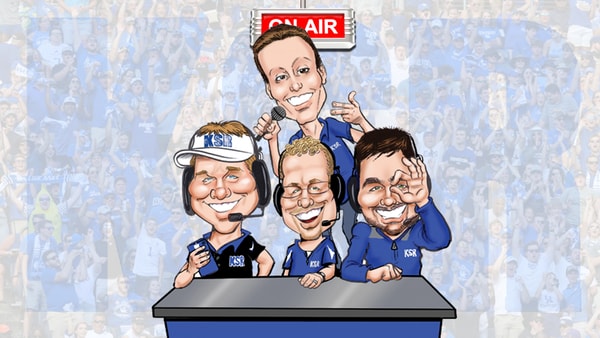
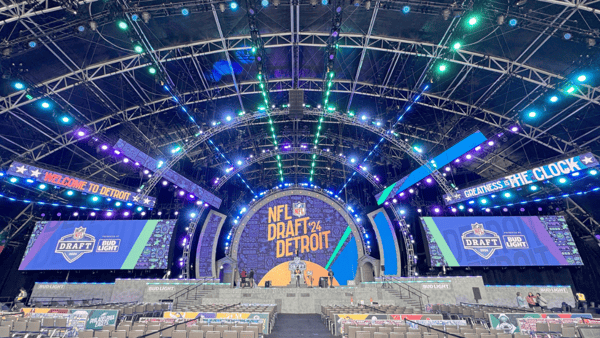
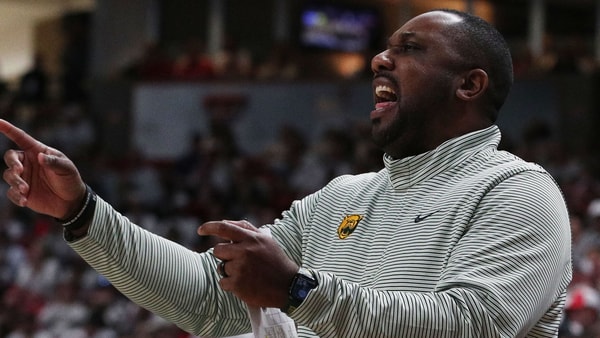


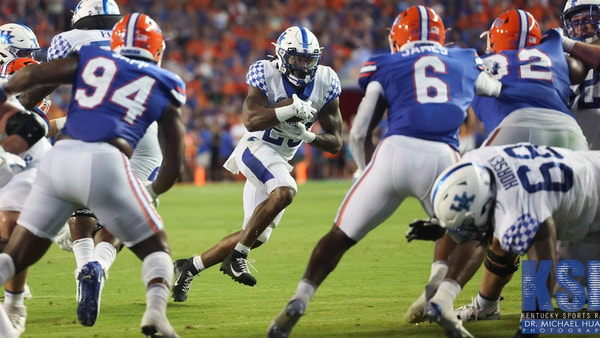

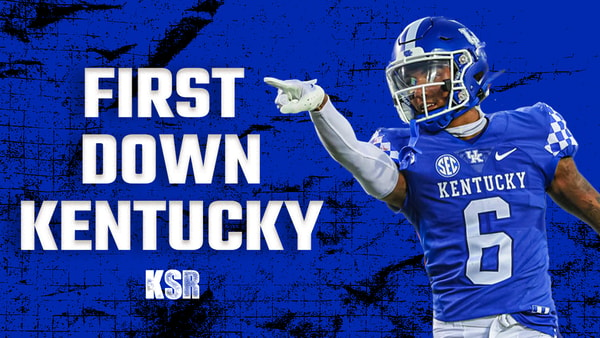
Discuss This Article
Comments have moved.
Join the conversation and talk about this article and all things Kentucky Sports in the new KSR Message Board.
KSBoard